Yumna Kassab
 Yumna Kassab is a writer from Western Sydney. She studied medical science and neuroscience at university. Her first book of short stories, The House of Youssef, has been listed for prizes including the Victorian Premier’s Literary Award, Queensland Literary Award and The Stella Prize. Her writing can be found online at Kill Your Darlings, Sydney Review of Books, Peril Magazine, Meanjin, The Sydney Morning Herald and now Mascara Literary Review.
Yumna Kassab is a writer from Western Sydney. She studied medical science and neuroscience at university. Her first book of short stories, The House of Youssef, has been listed for prizes including the Victorian Premier’s Literary Award, Queensland Literary Award and The Stella Prize. Her writing can be found online at Kill Your Darlings, Sydney Review of Books, Peril Magazine, Meanjin, The Sydney Morning Herald and now Mascara Literary Review.
Woman // Her Words
Alexis, 37, 1994
You can bring the horse to water but you can’t make it drink. You try to help people: you give them things, you teach them, and what do you get for your efforts? Nothing, absolutely nothing.
In the 70s, they gave them houses, they gave them jobs, food, they sent them to schools but you take the man out of the jungle but you damn right can’t take the jungle out of the man.
Those homes, drive 20kms that way and you’ll see what’s left of them. They took off the windows first. Then they started building fires in their homes. If they were hungry, they’d loot the general store and bugger the handouts we gave them.
Karmila, 22, 2007
Australia says no? That’s funny. There he is beating the crap out of you and you’ll tell him: hold a minute while I call this number. As if you’d ever do that. That’s well and good for people like them but you know who survives in the end? The one who keeps her head down and her trap shut.
Brigid, 41, 1988
We went for two weeks. We thought two or three days for the wedding to set our nails, get our hair done, and then they’d go off on their honeymoon, and we would be free, but by the time you factor in the jetlag and the little one being sick, we had a couple of days to ourselves, and the next thing you know, we’re packing our bags and heading home. Still it’s a lot more civilised than this circus of monkeys.
Ebony, 20, 2011
A woman walks into a bar, alone. People are going to talk to her. If you don’t want that, don’t go to bars.
Josephine, 52, 2008
You’re pretty adventurous for a Muslim girl. How do your parents feel about you going on these trips by yourself?
Marlene, 29, 2005
Everyone knows he hits her. It’s so obvious. How many times can you walk into a wall or a door? So far I’ve heard it’s a door, the wall, she tripped down the stairs, her hair got stuck in the drier, it’s from kickboxing. I don’t see why she doesn’t just pack up and leave. It’s that simple. Get your things together and go. You don’t need him. It’s not only that. You get tired of the stories. I don’t want anymore of it. Stop spinning your lies. We all see through them.
Amal, 41, 2018
I only listen to female musicians. I’ve had enough of men singing about hoes and bros.
Zizou, 65, 1992
The purity of the bloodline must be preserved. Our traditions, we have had them for thousands of years and just because we’re living in this country doesn’t mean we let go of what our people believe. These are our ways. They are your ways. Don’t you ever forget that.
Samah, 32, 2016
I knew the moment I saw him he was gay. He was wearing jewellery. I wanted to say to her: can’t you see it? It’s so obvious. I wonder if he’ll tell her or if it will drag on for months.
Francesca, 37, year unknown
I got sick of him calling me sweetie and honey. He’s my manager. It’s so unprofessional. And he’s only two years older than me. That makes it worse. So on Saturday, I sent him an email. Would you mind – I put this in the email – not calling me sweetie or honey in the interest of maintaining a professional relationship? I haven’t heard from him yet.
Saaeda, 72, 1999
She should be a teacher. Or a nurse. Those are good jobs for a girl. No engineering or being a mechanic. What man wants to come home to a wife with dirty fingernails?
Hala, 46, 2006
They brought up my carbon footprint again. What about the impact of your travelling on the environment? Don’t you care about the environment? So I said to them: what about the carbon footprint of you having kids? That shut them up.
Najwa, 5, 1987
There was a woman in the bank. She had a moustache. Mum said she’s not a man.
Marina, 40, 2001
I feel I have two woman trapped beneath my ribs. The first one – she wants to live an ordinary life – go to work, come home, cook, clean, sport on the weekend but the other one says that’s not good enough, you need to do more, you need to be living a super exciting life. Most days I have no clue what’s exciting anymore. You know what excites me, what turns me on? Staying at home with a cup of tea and a book.
Sam, 63, 2017
Every year, I like to go away somewhere new. I go away overseas…a week to myself…a new country. It keeps my mind fresh. It stops me from being bogged down in my routine.
Kathy, 59, 1990
I’m still wondering what I want to be when I grow up.
Marjane, 37, 2016
I wish she’d stop playing the victim. You’ve got it tough? So do the rest of us. The difference between us and you is we don’t sit around complaining about it. We get on with it.
Salam, 49, 2013
Lots of mums bring in their kids pretty young. They don’t want to but they have to. This is an expensive city to live in and they have bills, a mortgage, they have older kids in sport and so on but given the choice they’d want to be spending the time with their kids. We have a few newborns at the moment. I feel sorry for them. I get to hold a woman’s baby while she’s off working to make ends meet. You see it in their faces. It’s guilt, pure and simple. They know they’re missing out on time with their baby. I remember the first time I told a mum her daughter had taken her first steps that morning and I thought she would be excited, that this was good news, but it made her feel terrible that she’d missed out on her kid’s first step. Now I say nothing. I let them believe they said their first word at home, that when that little one takes a step in the living room, that is their first step.
Angeline, 28, 2003
We all assume that people are telling us the truth. We act as if there aren’t a million ways people lie. It might be the detail left out, it might be the choice to remain silent for a whole bunch of reasons. When you get a version of events, you think it’s the complete version. Nine times out of ten it’s not.
Shereen, 32, 2018
I am tired of living in the suburbs where nothing ever happens. These places are made for work and there’s nowhere to play. Each weekend, I go east to seek out new people and experiences because it’s so dead here. I mean literally nothing happens.
Zena, 21, 1994
You say a sentence, you dismiss an entire person’s life.
Zeroic, 35, 2018
My mind is not for sale.
Leila, 22, 2000
If something is destined for you, then it is destined for you. You don’t fight it, you don’t argue with it. In life, you have to surrender. Not everything is in our control.
Konsta, 42, 2017
You wouldn’t believe what she did. She called me up to ask if she could have a slice of cake. I thought she was joking because who would eat someone else’s birthday cake? She laughed as she ate my cake. She actually had the nerve to go ahead and eat it without me.
Brodie, 24, 2019
The crime is so much worse on paper.
Pearl, 73, 2004
Our lives were made out to be lesser than theirs. It took me years to see that.
Nicole, 45, 2004
Modern feminism has lost its way. Once upon a time, women protested with “Take Back the Night.” It took me ages to understand what that even meant. Take it back where? What does it mean to Take Back the Night? And you realise that there are black spots in every city. You simply don’t go there if you know what’s good for you. Maybe it’s like that for men too. I don’t know but as a woman it’s drummed into you where you can and can’t go. You are taught to fear while men, it seems, are the captains of their destiny and go where they please. And you have to ask how do we go from that – protesting we should have the safety in dark places – to a politician advising a woman to not walk in the local park at night because that’s asking for it. We have to remember a victim should never be blamed for the crime. The onus is on the criminal, for society to act and say clearly this is not acceptable. I blame feminism. Somewhere along the way, we gave up. Maybe we just grew tired of our demands not being heard. There are times in life you accept your lot, you throw up your hands and you accept your place in the machine.
Mimi, 9, 1989
Mummy went crazy. They took her away. Daddy cooked our breakfast. I tie my hair and my friends plait it.
Cass, 32, 2006
Whatever you do, don’t cross the river.
Ursula, 35, 2001
You could say she had enough. It’s easy to reach breaking point. Every single day, there’s so much crammed in, so much to do, there’s bound to be something left undone. So she packed her bags and left just like that, no warning. Her daughter says she took one suitcase, the neighbours say she walked off with her handbag and sneakers in a Kmart bag. She caught the 11:09 train. She hasn’t called, she doesn’t answer anyone’s call but she’s kept the same number. You can call it. It’s not disconnected or anything. Her daughter wanted to declare her missing but the police say they knocked on her door, made sure it was her, asked some questions and then closed the case. The police had these words to say to anyone who asked. “She’s a woman best left alone.” Her daughter says: are the police saying that or were those her exact words? Either way, does it matter?
Disclaimer: Any resemblance to real people, living or otherwise, including their speech, is purely coincidental. The writer refuses any responsibility for words or whole sentences misheard. Years and names have been changed to protect the identity of the speaker.
 Nicole Smede is a musician, poet and educator of Worimi and European heritage, exploring a reclamation and reconnection to ancestry through language, poetry and song. Her work has been broadcast on national and international radio, published in anthologies and journals and features on ferries, in visual art and sound art works. Nicole is grateful to live, learn and create on Dharawal country. https://nicolesmede.com
Nicole Smede is a musician, poet and educator of Worimi and European heritage, exploring a reclamation and reconnection to ancestry through language, poetry and song. Her work has been broadcast on national and international radio, published in anthologies and journals and features on ferries, in visual art and sound art works. Nicole is grateful to live, learn and create on Dharawal country. https://nicolesmede.com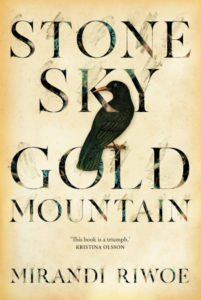 Stone Sky Gold Mountain
Stone Sky Gold Mountain Entries
Entries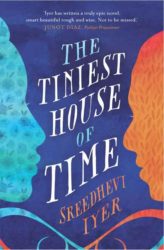 The Tiniest House of Time
The Tiniest House of Time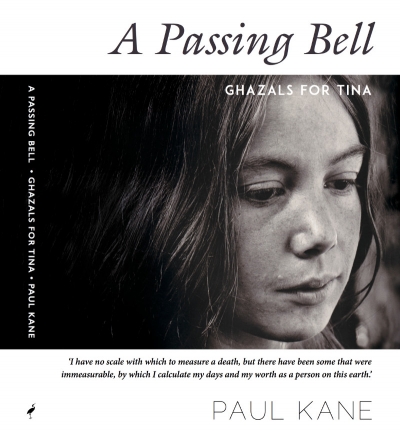 A Passing Bell: Ghazals for Tina
A Passing Bell: Ghazals for Tina Rose Lucas is a Melbourne poet. Her first collection, Even in the Dark (University of WA Publishing), won the Mary Gilmore Award in 2014; her second collection was Unexpected Clearing (UWAP, 2016). She is currently working on her next collection At the Point of Seeing.
Rose Lucas is a Melbourne poet. Her first collection, Even in the Dark (University of WA Publishing), won the Mary Gilmore Award in 2014; her second collection was Unexpected Clearing (UWAP, 2016). She is currently working on her next collection At the Point of Seeing.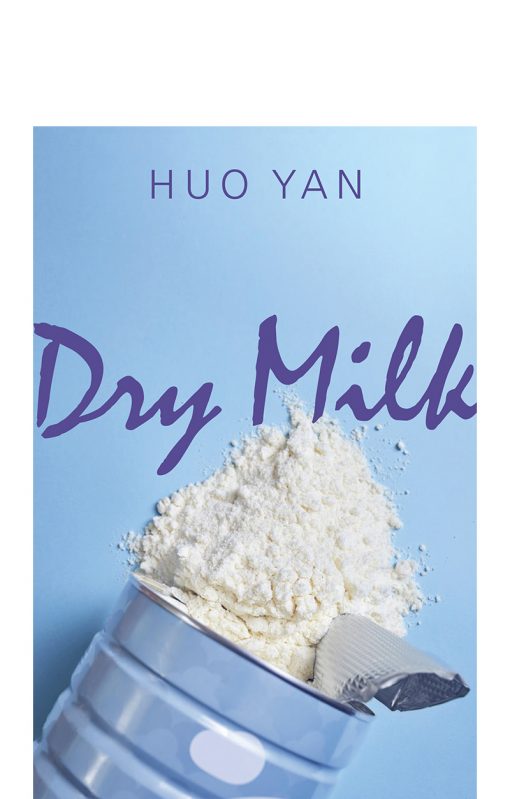 Dry Milk
Dry Milk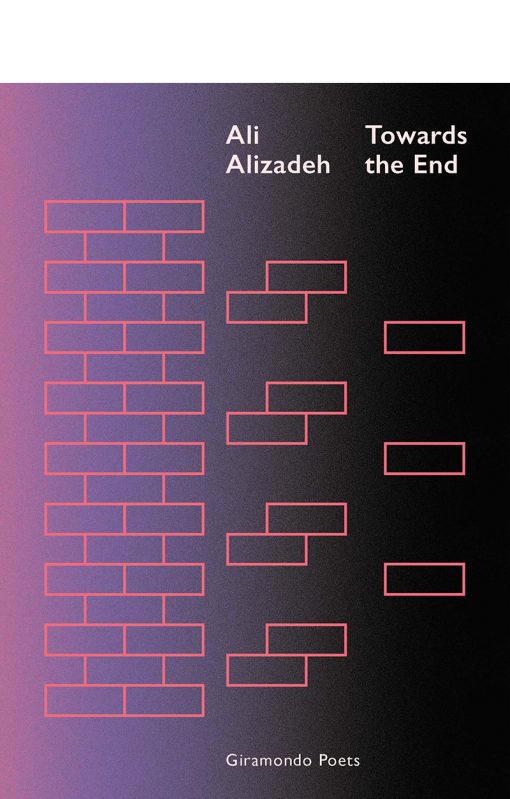 Toward the End
Toward the End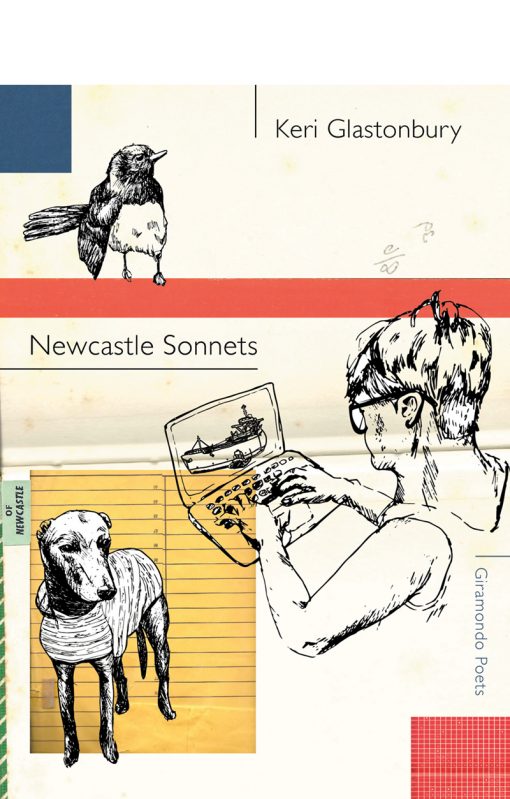 Newcastle Sonnets
Newcastle Sonnets